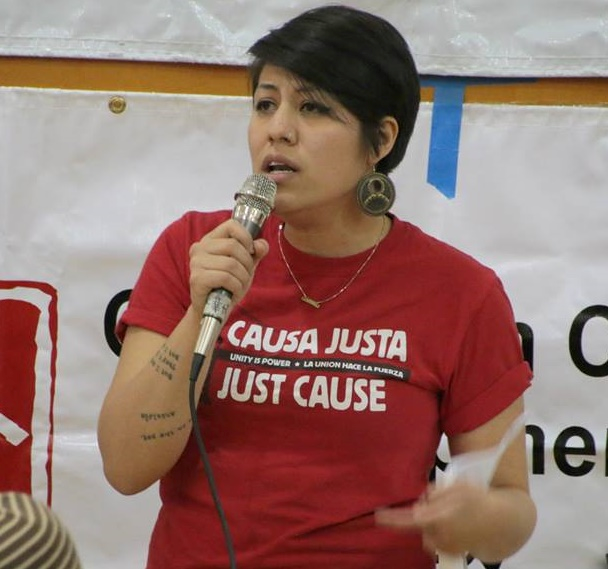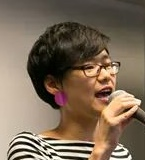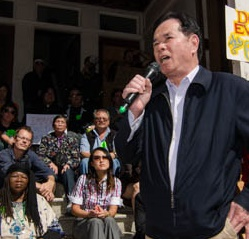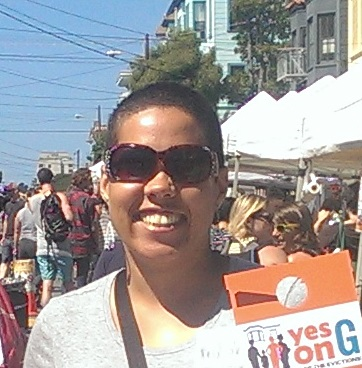
By Gen Fujioka
NOVEMBER 11, 2014 — As is customary after an election, there’s been a flurry of commentaries and analyses interpreting who “really” won — besides the actual (and obvious) victors. Tim Redmond on this site has called the election a win for the mayor and his financial backers. The Business Times hailed the “huge” defeat of G and welcomed the passage of Prop F (Pier 70) as setting the stage for more waterfront development. During the elections, the Chronicle suggested that the progressive movement was dead, but a post election Chronicle story reported that the “impressive” results on E and G and passage of J suggested that progressives still set the pace for politics in the city. And Randy Shaw offered his own list of winners and losers in BeyondChron with projections for next year’s elections. This is, of course, only a partial list of the media post-election analyses.
I’m not going to add to the prognostications about election trends here. For progressives, the more meaningful questions center on what worked or did not work for organizing our communities.
As we have learned from previous campaigns (recall the joy of the Obama victory in 2008 and the disappointment that continues), even winning an election may be less important in the long run than how a campaign sustains (or undermines) the level of progressive mobilization. Did 2014 unite and engage disempowered communities? Did it grow new leadership or advance new ideas to make real change?
To get some initial perspective on how this past campaign season impacted the grassroots, I spoke with activists on the progressive front lines.
Maria Zamudio, an organizer from Causa Justa:Just Cause, was a part of the Yes on G team that helped pull together the campaign’s voter outreach effort after the campaign sought to recover from the passing of our friend and colleague Ted Guillicksen. Two Saturdays after Ted’s passing, Maria, Fred Sherburn-Zimmer, Tammy Hung, and others mobilized more than 100 volunteers, assembled in three locations across the city, to reach out to voters about Prop G. They kept up that level grassroots involvement through to Election Day. Here are some of Maria’s reflections:
“In this election we made major gains in organizing working class immigrants, seniors, low-wage workers, parents, and tenants, firing people up around the demand that they, too, deserve to live in San Francisco. From the sweeping win of the strongest minimum wage increase in the country, to protecting a city funds to support youth, to the message of the Yes on G campaign, we moved tens of thousands of people to vote. While it did not win this year, Prop G was part of a larger progressive narrative that did win. That narrative, along with the tools developed and relationships built in this campaign, will be the foundation on which we can continue to grow.”
The Community Tenants Association played a leading role in mobilizing Chinese American tenants to support Proposition G. In the end, a majority of voters in Chinatown precincts supported the initiative
The president of CTA, Wing Hoo Leung, offered the following observations (translated from Cantonese):
“The Community Tenants Association supported Proposition G from the start. But we did not fully realize how important a fight it would be until we saw the lies coming from the other side. The opposition mailers and the ads on Channel 26 [the primary Chinese language TV station] were aimed to confuse voters and this motivated our members to work even harder. It was difficult at first because the original Yes on G literature did not fully address the concerns in our community. Once we got the correct literature we worked every Saturday and Sunday to get the word out. Some of our members were spit on and the literature ripped from their hands but this only made us more determined. We were encouraged by the results of the elections. We can see we made a difference and we must continue in our campaign to stop speculation.”
 Emily Lee’s regular job is as an organizer with the Chinese Progressive Association. This past election she worked with a coalition of labor and community organizations:
Emily Lee’s regular job is as an organizer with the Chinese Progressive Association. This past election she worked with a coalition of labor and community organizations:
“Families for an Affordable San Francisco focused not just on electing David Campos for Assembly, but also tied in supporting Prop G and Prop J in the fight for affordability that our communities need. We prioritized talking to voters as our most important strategy — not mailers, not attack ads, not social media, but actually having conversations with voters about our vision for making San Francisco a city that all families could afford, not just those with six-figure salaries. With a united force of labor and community partners, we were able to make the election more than a contest between two politicians; we were able to lift up the growing inequality in our city and say there is an alternative.”
One of the encouraging aspects of the grassroots campaigns this year were the number of volunteers who were new to elections work. Candy Michelle Smallwood was one of those first timers working alongside greying campaign veterans.
Candy grew up in public housing in Hunters Point, went to college and law school, and still lives in the City. But Candy never participated in a campaign before.
“This was my first election campaign and I learned a lot about organizing. I learned that just taking the time to explain the issues to our neighbors makes a big difference. When we explained how speculators are taking away rent-controlled housing, it was like a light went on for people and they got it. They understood better what is happening in their neighborhood. It was powerful. I’m definitely ready for the next campaign.”
Engaging new activists like Candy and growing their involvement as leaders is a key measure of the success of any progressive political campaign. It’s what movement building is all about. And it is essential to engage this new leadership in planning for what lies ahead.
Let’s go back to the published discussions about “winners and losers.” In particular, I feel compelled to object to one post-election conclusion that Asian American voters “won” last week’s elections — based upon David Chiu’s victory over David Campos in the state assembly race. That’s the view proposed by Randy Shaw in BeyondChron and shared by some other media as well.
The logic of this claim seems to be that because many Asian American voters voted for Chiu (and Chiu being Asian American) this election was a “win” for Asian American voter power. On a superficial level, it’s a logic that makes sense and it adds what may be to some an appealing minority-empowerment gloss to a bitterly contested race.
But the reality is that the David Chiu campaign was never framed or organized as a vehicle for Asian voter empowerment. The campaign promoted Chiu’s rather generic attributes of competence and “getting things done.” The major issues that distinguished Chiu from Campos (e.g., the legalization of Airbnb) were not in any way Asian American causes. And from what I could observe, the Chiu campaign did not develop a community-based grassroots effort. In stark contrast, the Campos campaign mobilized from within the Latino, LGBT, and other communities.
As the successful Chiu campaign proves, resource-rich campaigns don’t need to organize on a grassroots level. They can direct mailers, advertisements and calls with targeted messages that are designed to appeal to voters based upon set ethnic or gender identities, languages spoken, economic status, even consumer preferences. Their messages are shaped by polls.
While often successful, this is not the stuff that builds meaningful democratic power in any community — nor is it intended to create any long-term change. It’s designed to market a candidate or issue to voters. That should not be confused with empowering any particular set of voters, whether they’re Asians, tech workers, or homeowners.
Actual grassroots or community-based campaigns to empower voters have a very different orientation than rich, poll driven campaigns. For those campaigns, the usual measures of “winning” or “losing” can miss the point.
For example, Randy Shaw listed SEIU Local 1021 as an election “loser,” because the union had supported Campos, Prop G, and other candidates and measures that lost. But as Local 1021 shop steward and activist Maria Guillen notes, that assessment misunderstands how and why the union makes endorsements.
“We aren’t just trying to pick winners,” Maria told me. “We take positions based upon what our members think are the right positions to take. A lot of times it feels like we are going against the tide, but we need to have the courage to do that. These are fights we need to win over the long term.”
Real progressive campaigns must be prepared to take risks and push the envelope to make meaningful change. And campaigns that seek to change the status quo must also sometimes challenge voters to think beyond first impressions and existing identities and imagine new possibilities. For these campaigns and issues, it may take two or three elections to reach the finish line.
That logic cannot become an excuse for losing. But nor can such efforts be judged as winner or losers the day or week after an election. Reform strategies must be evaluated in terms of whether they truly created deeper understanding and support within communities and whether after the elections the work of organizing continues.
The good news from this past election is that we demonstrated that the grassroots in San Francisco can still mount a competitive campaign to support big, bold, groundbreaking ideas for change. Despite rapid gentrification, organizing still matters in this city. As a result of that organizing — and despite overwhelming outside corporate campaign contributions in opposition — Prop G (and David Campos) came close to winning in a low-turnout election. Outspent 12 to 1, the Yes on G campaign came within single digits of winning.
Now the hard work begins to make this the basis for bigger change the next time.
Note: Emily Lee will be speaking on a panel about the outcomes of the local elections called “What’s Next?” to be held at the Bayanihan Center on Thursday at 7pm.
Gen Fujioka’s day job is Policy Director for Chinatown Community Development Center. He was a volunteer for the Yes on G campaign and is a board member of the San Francisco Progressive Media Center, which publishes 48 Hills. The opinions expressed in this article are his own.









